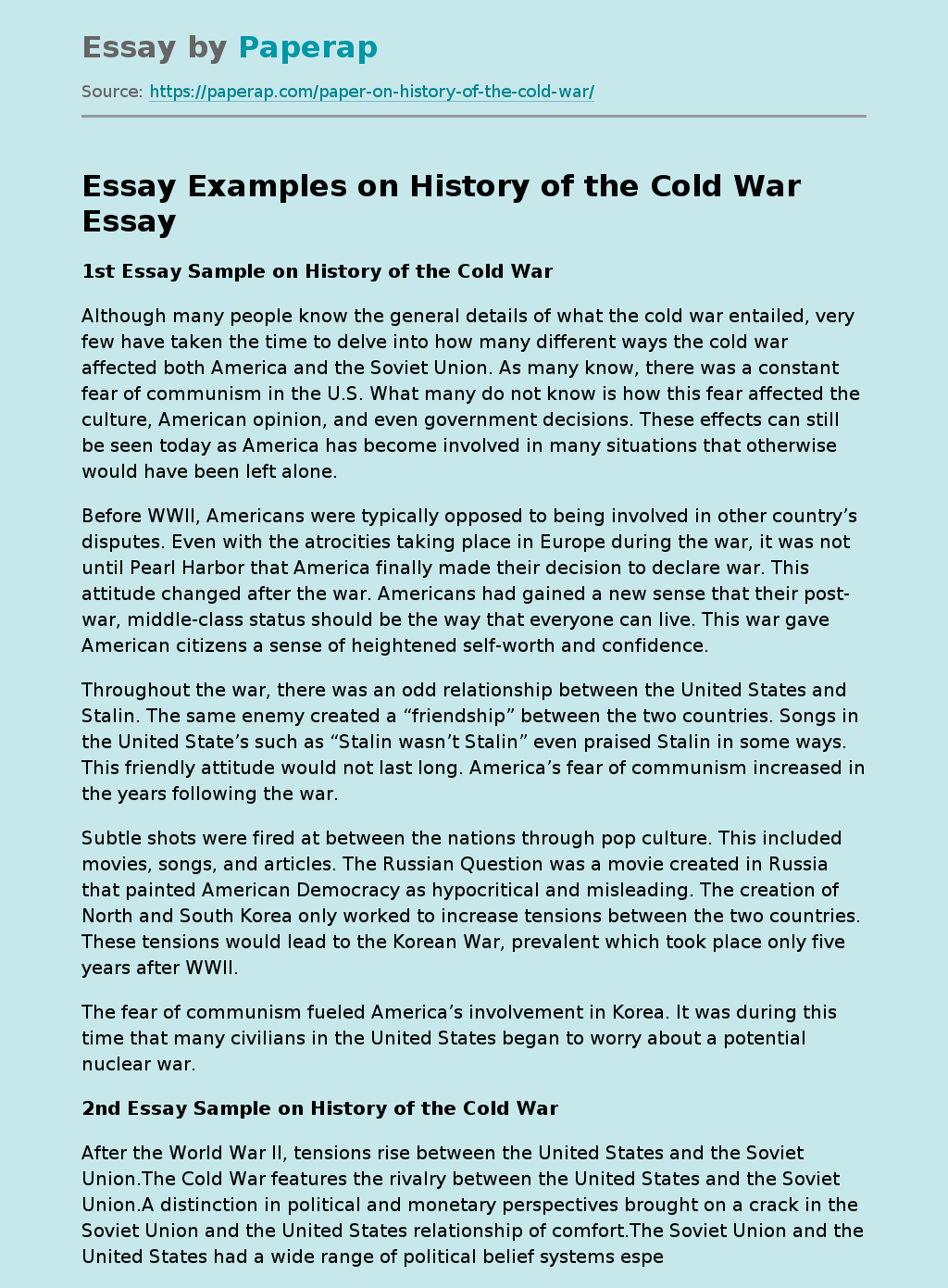Cold War: Global Geopolitical, Military, Economic and Ideological Confrontation
Although many people know the general details of what the cold war entailed, very few have taken the time to delve into how many different ways the cold war affected both America and the Soviet Union. As many know, there was a constant fear of communism in the U.S. What many do not know is how this fear affected the culture, American opinion, and even government decisions. These effects can still be seen today as America has become involved in many situations that otherwise would have been left alone.
Before WWII, Americans were typically opposed to being involved in other country’s disputes. Even with the atrocities taking place in Europe during the war, it was not until Pearl Harbor that America finally made their decision to declare war. This attitude changed after the war. Americans had gained a new sense that their post-war, middle-class status should be the way that everyone can live. This war gave American citizens a sense of heightened self-worth and confidence.
Throughout the war, there was an odd relationship between the United States and Stalin. The same enemy created a “friendship” between the two countries. Songs in the United State’s such as “Stalin wasn’t Stalin” even praised Stalin in some ways. This friendly attitude would not last long. America’s fear of communism increased in the years following the war.
Subtle shots were fired at between the nations through pop culture. This included movies, songs, and articles. The Russian Question was a movie created in Russia that painted American Democracy as hypocritical and misleading.
The creation of North and South Korea only worked to increase tensions between the two countries. These tensions would lead to the Korean War, prevalent which took place only five years after WWII.
The fear of communism fueled America’s involvement in Korea. It was during this time that many civilians in the United States began to worry about a potential nuclear war.
After the World War II, tensions rise between the United States and the Soviet Union.The Cold War features the rivalry between the United States and the Soviet Union.A distinction in political and monetary perspectives brought on a crack in the Soviet Union and the United States relationship of comfort.The Soviet Union and the United States had a wide range of political belief systems especially communism and capitalism.Capitalism is a conviction that private property ought to be supplanted by group possession.
Communism is restricted private possession economies of the United States and its partners.What exactly was containment?Containment was the endeavor to stop the spread of communism.To get a better idea of what exactly was containment, I’m going to tell you three examples of containment: The Berlin Airlift, the Korean War, and the Cuban Missile Crisis.
The first example would be the Berlin Airlift.The Berlin Airlift started on June 24, 1948, through May 11, 1949.Berlin, the capital of the Soviet Union, was inside of the limits of Soviet East Germany. However, the Allies chose to the separation that city also. The Soviets set up a prohibitive; comrade government and individuals started to escape to West Berlin. Stalin barricaded the city of Berlin keeping in mind the end goal to keep individuals in yet basically to keep the Allies out so they would need to permit the Soviets to have all of the Berlin. The Allies countered by sending various planes into West Berlin frequently.
The planes were loaded with sustenance and such a request to keep West Berlin above water.The Berlin Airlift is a good example of containment because the Berlin Airlift kept the Soviets from overwhelming Berlin through the Berlin Blockade. They needed to be the main suppliers of nourishment, fuel, and so on so that they would turn into the viable leaders of the locale and consequently spread communism.
Cold War: Global Geopolitical, Military, Economic and Ideological Confrontation. (2019, Oct 10). Retrieved from https://paperap.com/paper-on-history-of-the-cold-war/

